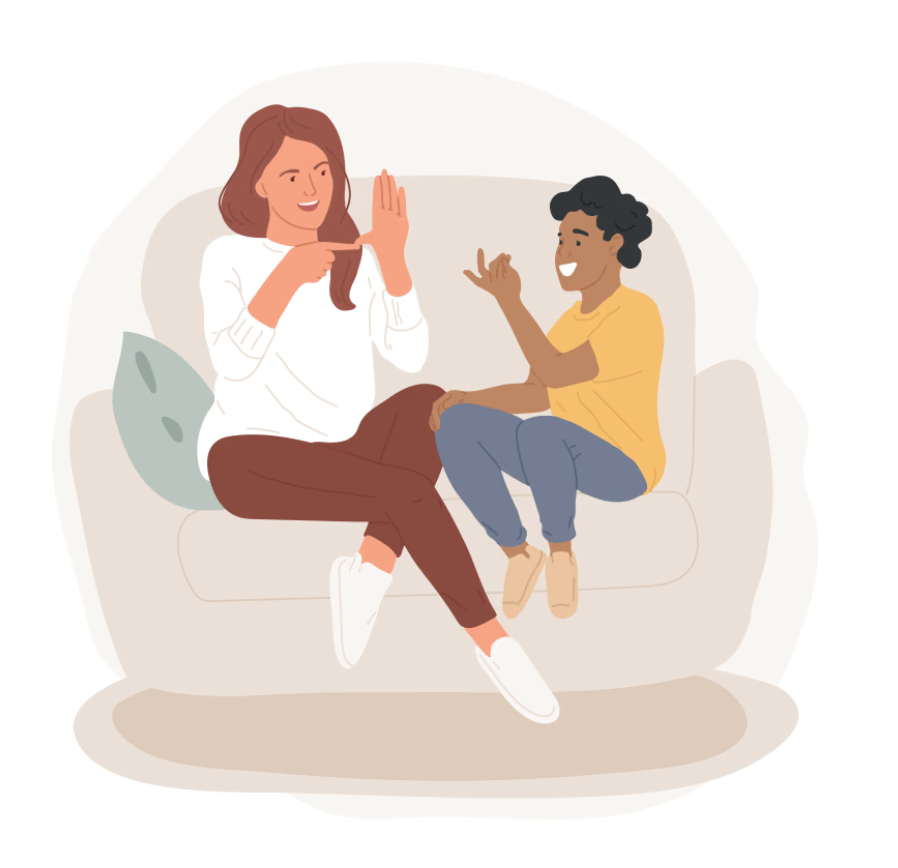It's October: Let's Talk Month!
- Narda Skov
- Oct 23, 2023
- 3 min read
It's October, which is Let's Talk Month and I couldn't let it pass without posting this terrific article from the Human Rights Campaign.

I have worked with many youth over my 30 years teaching and I am always surprised at the number of times I hear unkind words followed by "Just kidding....", or "they're my friend, they know I'm joking", or "But girls can't play as well, and we all know that." My response is always if you know better, then please say something kinder and better.
It doesn't matter if it is a first grader who might not know what the word 'gay' means, a sixth grader trying to sound cool or a tenth grader 'teasing' a friend. All of these scenario shave the potential of creating an unsafe environment and must be addressed. This is especially true in the classroom or educational setting, but equally as important in a carpool or on a sports team, or just amongst family and friends. Offensive statements must be addressed, no matter how small. So, what can caring adults do?
The statements below are directly addressing anti-LGBT comments in the classroom, but can easily be applied to any putdowns of gender (i.e. "girls can't do that", or "boys don't wear that-that's so gay", etc.).
STOP IT....
Keep it simple with quick responses:
"Remember, we don't use put-downs in this class (house)."
"Do you know what 'gay' means?"
"It's not OK at this school (in this house) to use 'gay' disrespectfully to mean something is bad."
"You may not have meant to be hurtful, but when you use the word 'gay' to mean something is bad or stupid, it is hurtful." Follow-up with, "Do you know why it is hurtful?"
"Using any derogatory word to tease someone is harassment and is unacceptable."
"Even if you didn't mean to offend people who are gay, it is offensive to call this assignment gay (or queer); if you don't like something, they say you don't like it!"
"It is never OK to say, 'you act like a girl (or look like a boy)' as a put-down."
"Using a slur related to gender or sexual orientation to joke around is not OK. These are hurtful words and can impact anyone who overhears them."
"It doesn't matter who said it, I don't want to hear that kind of language again. Is that clear?"
DON'T IGNORE IT...
Harassment does not go away on its own.
Ignoring mean name-calling and hurtful teasing allows it to continue and possibly get worse.
If other students do not see action, they get the message there is nothing wrong with it.
Not speaking up teaches the student targeted, as well as anyone within range, that they will not be protected from harassment.
Almost any response is better than ignoring the situation. You may not know exactly what to say, but you must stop the harassment.
Taking action reaffirms limits. Interrupting name-calling and harassment isn't always easy. With experience you will become more comfortable in handling it. Practice with other parents or colleagues.
You can always go back to the young person (or student) and say or do something else if you feel you didn't respond well.
EDUCATE...
If you have the time and opportunity to educate on the spot, do it. If you don't, make time later.
If you have been hearing the phrase 'that's gay', take time during a team practice or during class to make sure that your youth know what 'gay' means and know why it is hurtful to use as a comment or put-down.
Be clear that using the word 'gay' in a negative way is disrespectful. Be clear that using the phrase 'that's gay' is hurtful to other students how many have family members and friends who are LGBTQ+.
Be prepared to provide accurate information. For the youngest students, or youth, keep it simple-for example, "The word 'gay' describes a man and a man or a woman and a woman who love or are attracted to each other." As youth mature, they may want more explanations and discussion.
In lessons on respect, prejudice or civil rights, include information about discrimination against LGBTQ+ people and the LGBTQ+ civil rights movement.
BE PROACTIVE....
Develop an environment of respect and caring for all students in your school and classroom using inclusive language, books and other materials.
Establish clear schoolwide and classroom policies against hurtful teasing and bullying. Ensure that all members of the school community understand what the policies are and why they are important.
Be explicit that rules against hurtful name-calling include all LGBTQ+ put-downs.
Develop the capacity of youth, parents, students and educators to be allies that stand up for students who are harassed.




Comments